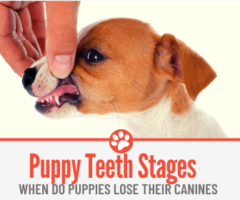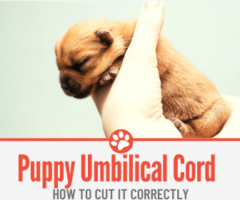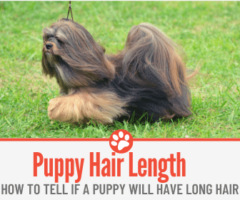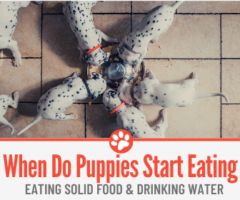 There are many things to considering when preparing to buy or adopt a new puppy. Their breed and their sex, for example, are all things to think about before making room for a dog in your life.
There are many things to considering when preparing to buy or adopt a new puppy. Their breed and their sex, for example, are all things to think about before making room for a dog in your life.
Dogs are also expensive, and some might come with more costs than originally expected. Some conditions can be prevented, some go away on their own, but some will require constant care and a lot of dollar bills.
Hernias, for example, are quite common in dogs, especially puppies, and they range from mild and non-threatening to dangerous and painful.
So, what do you do in this situation?
Should I Buy A Puppy With An Umbilical Hernia?
Umbilical hernias are among the most common type of hernia found in puppies. Most are not harmful or can be quickly dealt with through surgery, so when it comes to buying a puppy with an umbilical hernia, it depends on the size of the hernia. To put it simply, if the puppy has a relatively small hernia, it should be fine and can be resolved naturally, or with a quick surgery.
Puppies with larger umbilical hernias that continue to grow and visibly distress the puppy or are painful when touched will probably have bigger and more severe issues later on which in turn will require more care and money from you.
What Causes Hernias In Puppies?
Hernias in puppies are at least 90% of the time due to genetics, so if the a had a type of hernia it is very likely that their offspring will too.
Hernia’s can also come about due to trauma such as being hit by a car.
However, in most cases, umbilical hernias happen like this.
Just like babies, puppies in their mother’s bellies are provided with nourishment via their umbilical cord that connects them to their mother. Umbilical blood vessels pass into the puppy via what is called the umbilical ring, which is a small opening in the abdomen. Exactly like our bellybutton if you will.
After the puppy is born, the umbilical cord is no longer needed and is usually cut by a breeder or chewed off by a doggy parent. An Umbilical hernia is caused when this umbilical ring doesn’t close and heal properly after birth.
How Serious Is An Umbilical Hernia In A Puppy?
As many other complications, umbilical hernia’s range for mild and non-problematic, to severe. It is important to keep a close eye on the puppy and the size of its hernia. However, umbilical hernias are among the most common in puppies and most of the time are taken care of quite easily.
What Does A Hernia Look Like In A Puppy?
An Umbilical hernia presents itself as a sort of squishy and bulgy protrusion where their bellybutton is meant to be. This is because an umbilical hernia is a tear in abdominal wall muscle and it allows fatty tissues and organs that are usually meant to be kept inside the abdominal muscle wall, protrude outwards.
Can An Umbilical Hernia In A Puppy Heal Itself?
This depends largely on the size of the hernia and of course, every puppy is different. Small hernias that are smaller than 1cm can close up and heal all on their own by the time the puppy is around three or four months old.
Do Umbilical Hernias In Puppies Go Away?
With umbilical Hernias in puppies that exceed 1cm and do not disappear on their own after four months, minor surgery is recommended.
Of course, there are cases of them miraculously healing on their own, other time the hernia might not even cause any distress or physical pain to your puppy and therefore can just be left alone.
However, if you choose to leave your puppies umbilical hernia alone, be sure to monitor it and consult with your vet regularly. Umbilical hernias are not dangerous most of the time but can cause some serious health problems and pain for your dog if you do not keep an eye out for any changes in it’s size or your puppy’s behaviour.
The simplest thing to do with an umbilical hernia in a puppy older than four months is surgery.
Umbilical Hernia In Puppies Surgery & Cost
Surgery to fix an umbilical hernia is quite simple. It involves removing any scar tissues around the hernia and suturing off the defected area. Most vets will actually include hernia removal for a small extra fee when spaying or neutering your dog.
It can be done all in one, and any return of the hernia is very rare.
How Much Does It Cost To Fix An Umbilical Hernia In A Puppy?
If you choose to remove the umbilical hernia when spaying or neutering your puppy, veterinarians often offer some sort of special deal. The average hernia operation is around $200. The cost of spaying/neutering is around $70. However, if opting to do both at treatments in one, the average cost is $240.
Of course, it is important to consider whether your puppy actually requires the hernia operation. At the end of the day it is still a surgery, and if your puppy can live healthy and problem-free with their umbilical hernia, why not simply let them.
Does An Umbilical Hernia Hurt A Puppy?
On average, umbilical hernias are not painful and should not be causing your puppy any discomfort. If your puppy is showing signs of distress when you try to touch their umbilical hernia, it might mean that intestinal organs are being pushed through it.
A painful umbilical hernia is a sure sign to take your puppy to the vet as soon as possible to discuss a plan moving forward.
While the majority of umbilical hernias provide zero pain or problems, it is important to take your puppy’s pain seriously when they do show symptoms of distress in connection to their hernia.
Can You Breed A Dog With An Umbilical Hernia?
Because hernias are genetic, it is not recommended to breed dogs with umbilical hernias. Dogs with large hernias that required surgery to remove should definitely not be bred.
In cases of smaller umbilical hernias that required minor surgery or went away on their own, it should not be something you would want to risk passing to the next generation of puppies. It should generally be something you want to breed away from.
At the end of the day there is no guarantee which umbilical hernias will or will not become a problem, so why not avoid them all together?
Can A Dog With A Hernia Have Puppies?
Dogs with hernias can certainly still have puppies, but the chances of them passing the hernia to their pups is incredibly high.
At this point you’d just be breeding a bunch of puppies that may or may not develop hernias that may or may not become life-threatening but will be annoying all together either way.
That is why vets offer hernia removal included in their spaying and neutering treatments. Two birds, one stone: remove the hernia, prevent the dog from having puppies and passing it onto them.
At the end of the day it’s completely up to you and whether you are ready to deal with whatever stress comes with a puppy with an umbilical hernia.
Your dog could live years without it ever being a problem, or it could require emergency surgery one day.
What is most important here is to consult your local vet about your specific case, speak to them about your options, ask them for advice, and remember to always do what is best for your puppy.






